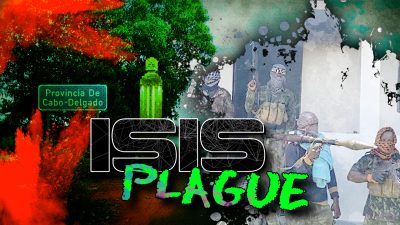Video: Mozambique’s Cabo Delgado Has Been Plagued by ISIS for Years

All Global Research articles can be read in 51 languages by activating the “Translate Website” drop down menu on the top banner of our home page (Desktop version).
***
In recent months, and ramping up in recent weeks especially, attacks by the terrorist groups in the areas near Total’s massive gas project became regular.
Uncontained ISIS now is taking on the Mozambican army and seizes entire towns. It threatens the French giant’s project that is worth $20 billion; and all the projects in the region are collectively worth nearly $60 billion.
Prior to the large-scale attacks, there was little talk of Mozambique’s chaotic north.
NGOs were frequently calling for international assistance to the locals. Reports of beheaded soldiers, women and even children were commonplace.
Most recently, on March 24th, another offensive began by ISIS – it attacked the town of Palma, which is the nearest to the Total project. About 60 people were killed. 7 foreigners were among the victims. Approximately 180 people, including Total’s workers, were trapped in a hotel in Palma. After a three-day siege the people were evacuated.
After a few more days of fighting, ISIS announced that it had captured the town. This was accompanied by gruesome photographs of devastation, and corpses of beheaded men, women and children on the streets.
This is not uncommon for the region, but it has become rather mainstream after the massive gas projects were jeopardized. After all, the insurgency has been happening since 2017, and the United States designated the militants as “terrorist” only on March 11th, 2021.
Total’s project is halted, and when such massive amounts of money are under threat, the “international community” mobilizes itself immediately.
The United States announced that it would sent green berets to help train the Mozambican Army.
The UK claimed it was sending its Special Air Service forces to search for a British man who disappeared in Cabo Delgado.
Portugal is going to deploy soldiers at the beginning of April in Mozambique where they will train local troops.
The Mozambican army and its foreign support will need to exert great effort to expel ISIS and restart Total’s project, but when it comes down to billions, it is likely that nothing is impossible.
At the same time, on the other side of the African continent, China is beginning a massive oil project in Benin.
The China National Petroleum Corporation (CNPC), which is extracting a valuable resource in Agadema, Niger, is reportedly planning to build a pipeline through Benin in order to avoid passing through unsecured areas in Nigeria, Chad or Cameroon.
The Lake Chad area is infested by Boko Haram, but also by ISWAP. Both groups are fighting for dominance against each other, and against any local authority in the region.
Whether China’s project would be plagued by the same problems that any other foreign, or local, project needs to deal with will become apparent with time. It is, furthermore, obvious that the “international community” will not come to Beijing’s rescue if the project is endangered.
It is, however, an indisputable fact that the terrorist hotspots that are the Sahel, Lake Chad, as well as Mozambique’s Cabo Delgado go unnoticed until they impede a massive Western project, or another type of investment.
*
Note to readers: please click the share buttons above or below. Forward this article to your email lists. Crosspost on your blog site, internet forums. etc.
SUPPORT SOUTHFRONT:
PayPal: [email protected], http://southfront.org/donate/ or via: https://www.patreon.com/southfront

